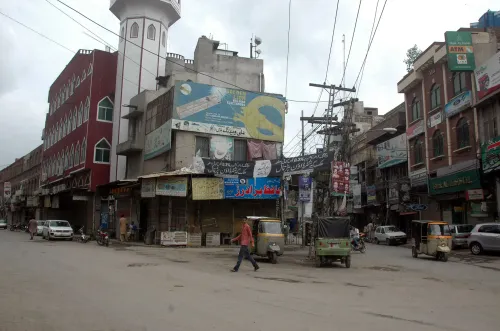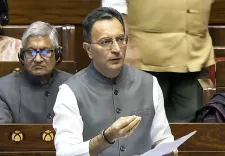Is the US-Pakistan Mineral Deal a Strategic Mistake?

Synopsis
Key Takeaways
- Baloch leaders oppose the US-Pakistan mineral deal.
- The agreement may empower military forces in Pakistan.
- Past mining projects have failed to deliver benefits to the local population.
- The region remains one of Pakistan's poorest areas despite resource wealth.
- Transparency and local consent are essential for future agreements.
Islamabad, Aug 9 (NationPress) The US-Pakistan mineral deal is encountering significant resistance from the Baloch community, as local leaders, including Mir Yar Baloch, describe it as a strategic blunder, according to a report released on Saturday. He cautioned that this agreement would further empower Pakistan's military and intelligence agencies, exacerbating the marginalization of the Balochistan populace.
“When Pakistan formalized its minerals and mining agreement with the United States, officials in Islamabad may have perceived it as an economic triumph, a strategy to attract American investments and diversify alliances beyond Beijing. However, beneath the celebratory surface lies a troubling reality rooted in the tumultuous and violent history of Balochistan — a region that has consistently thwarted large-scale development initiatives and foreign investments,” highlighted an India Narrative report.
“Over the years, multinational companies like Barrick Gold and China Metallurgical Group have signed agreements promising local development. Yet, the region continues to be one of Pakistan's most impoverished and disenfranchised areas, fueling profound distrust among the Baloch people,” it stated.
The report noted that the Saindak copper-gold project, operated by Chinese firms for over a decade, has resulted in significant mineral extraction. However, locals argue that there has been minimal improvement in fundamental infrastructure or job opportunities. Furthermore, the Reko Diq mine, known as one of the largest copper-gold deposits globally, has been mired in disputes over revenue allocation, with the majority of profits benefiting central authorities and foreign investors, leading to feelings of deprivation and betrayal among Balochistan's residents.
The China-Pakistan Economic Corridor (CPEC), a $60 billion initiative under Beijing's Belt and Road Initiative (BRI), intended to revamp Pakistan's infrastructure and economy, has instead incited violence, particularly in Balochistan.
“Pakistan’s military has attempted to safeguard Chinese interests in Balochistan, yet the rise in attacks and violence has only rendered parts of CPEC projects ineffective, undermining investor confidence. Suppression, as history indicates, merely drives resistance underground, making authentic development unattainable,” the report asserted.
According to the report, US President Donald Trump's recent decision to exploit Pakistan's oil and mineral resources aims to achieve economic benefits and strategic leverage to counterbalance Beijing's global dominance over critical minerals. The Pentagon specifically challenges China's monopoly over rare earths, crucial for military technologies and drone fleets, as Washington seeks to bolster domestic capacity and diversify its supply chains.
However, the report emphasized that, despite Pakistan’s assertions, its proven oil reserves are relatively limited — estimated between 234 million and 353 million barrels — far from “massive” and considerably smaller compared to India. This suggests that the US's genuine interest lies in critical minerals: copper, gold, and rare earths, most of which are found in the politically unstable region of Balochistan.
“For the United States, the attraction of minerals and the potential for strategic advantages are compelling. However, if Washington fails to learn from Beijing’s hard-won experiences and ensure that projects address the grievances of the Baloch community, any new mining or oil endeavors are likely to descend into the same quagmire: violence, stalled infrastructure, and escalating resentment,” the report concluded.
With its economy on the verge of collapse and significant debt pressures, Islamabad may be inclined to accept any offer that provides temporary relief, even if it leads to instability or negative consequences. “But these agreements, made without local consent or transparency, appear destined to repeat the errors of the past — igniting resentment and insurgency rather than fostering enduring stability or prosperity,” the report stated.










